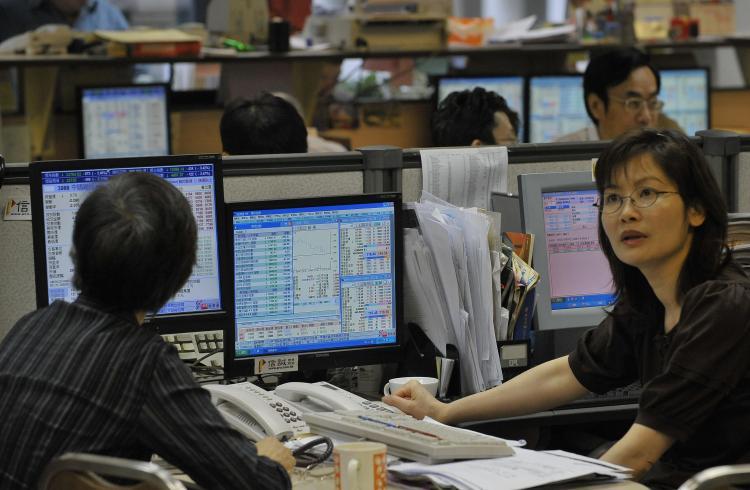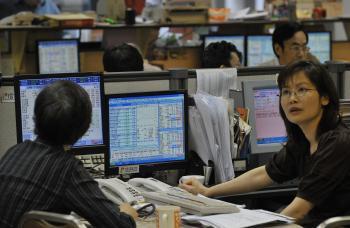
Traders at a brokerage in Hong Kong. Hong Kong ranked first among 118 nations for ease of cross-border trading and for being the most desirable trading and investment partners in international trade. Mike Clarke/AFP/Getty Images
It was an eye opener to discover that two Asian nations ranked first among 118 nations for ease of cross-border trading and for being the most desirable trading and investment partners in international trade. Hong Kong came in first with a 6.04 score and Singapore second with a 5.71 score on a scale of 1 to 7, where 1 is the lowest possible score.




